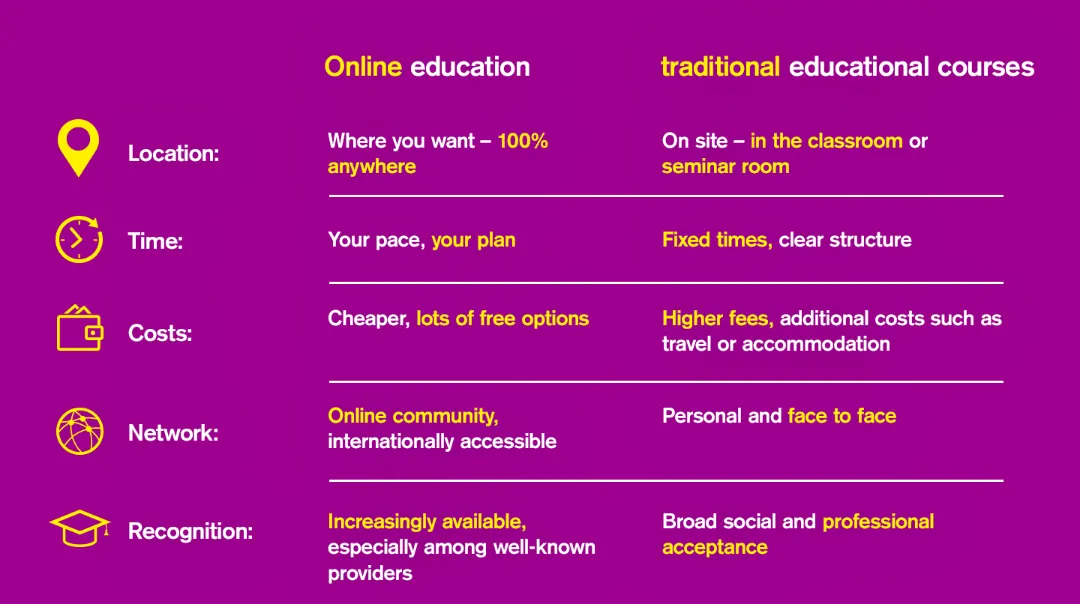Online educational courses offer flexibility, are often more affordable and are perfect for anyone with a busy schedule.
You learn when and where you want – whether in your pajamas in the morning or on the sofa in the evening.
Digital certificates are becoming increasingly recognized, especially by well-known institutions.
Knowledge has never been more accessible than it is today. Whether in the auditorium, classroom or with the click of a mouse – education is more diverse than ever. Today, many learn digitally, flexibly and precisely when it fits into their everyday lives. The big question: How well does it really work? And what are the long-term benefits of an online certificate?
Online courses, webinars and digital courses are booming – and rightly so:
So if you want to combine work, leisure and personal development, online learning is the perfect solution – sounds good, doesn't it?
Online vs. traditional: Comparison for your career boost

Further education is no longer an “either/or” situation – it's about finding the right way of learning for you. Today, online courses offer you many opportunities to develop your skills alongside your job or in your everyday life – at your own pace, with global access to knowledge.
If you want to learn flexibly and independently, online is definitely worth a click.
An error has occurred.
Please try again later.
(If you are using Google Chrome, make sure that
the page is not translated by «Google Translate».)
